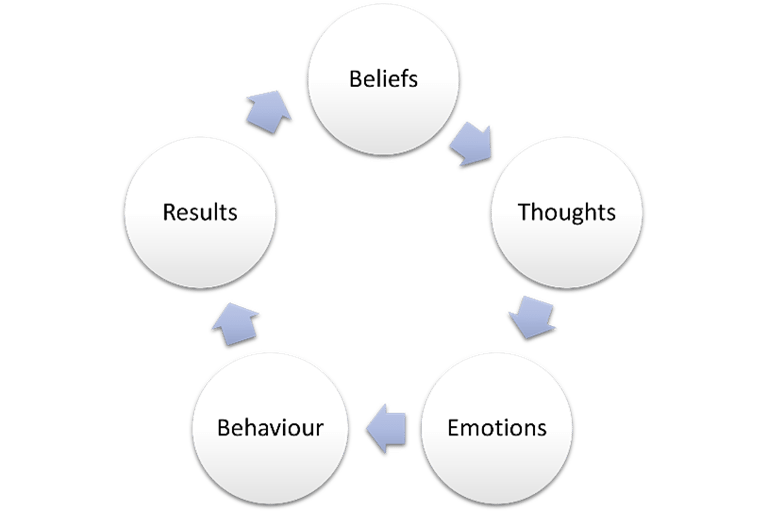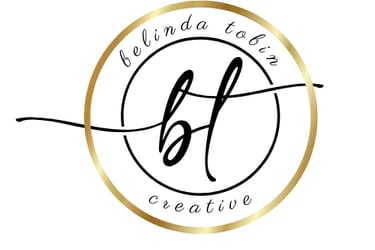Rethinking Creativity: How Your Beliefs Shape Your Creative Potential
Have you ever felt stuck in your creative pursuits—like you can't come up with any original ideas or don't have the skill to see them through to success? What if I told you that the biggest barrier to your creativity isn't talent, time, or resources but rather the beliefs you hold about creativity itself?
3/18/20257 min read


Have you ever felt stuck in your creative pursuits—like you can't come up with any original ideas or don't have the skill to see them through to success? What if I told you that the biggest barrier to your creativity isn't talent, time, or resources but rather the beliefs you hold about creativity itself?
Our beliefs act as invisible forces shaping our experiences, often without us realising it. As James Allen wrote,
"The outer conditions of a person's life will always be found to reflect their inner beliefs."
For centuries, philosophy and spirituality have pointed to the mind as the starting point of all creation. The Hermetic Laws, attributed to the ancient sage Hermes Trismegistus, suggest that "All is Mind"—that our thoughts form the foundation of our reality. Today, modern psychology confirms what these ancient teachings proposed: our beliefs and thought patterns shape not only how we see the world but also how we interact with it.
Thanks to extensive research in psychology and neuroscience, we now understand how our internal narratives influence creative expression. The Cognitive Behavioral Therapy (CBT) Model provides a clear framework for how beliefs drive thoughts, emotions, and behaviours—ultimately shaping our creative potential.
The Cognitive Behavioural Therapy (CBT) Model
A belief is a thought, attitude, or opinion an individual accepts as true. Many of our beliefs are adopted from our parents and carers and ingrained in childhood. However, some are also formed through our own life experiences, with our time away from our families potentially being used to discredit or dispose of those we were taught when we were young.
It is important to note that a belief does not have to be based on fact to significantly influence a person's behaviour and experiences. All that matters is the individual's acceptance of it as truth.
The impact of beliefs is well illustrated by placebo research, where even if a person is given a simple sugar pill, it can trigger real physiological responses. It only requires a person to believe that they have been given an effective treatment to result in improvements in conditions such as pain, fatigue, coughs, and even Parkinson's Disease. When an individual
truly believes in the efficacy of a treatment, it becomes their reality and results in tangible outcomes.
If beliefs can determine the course of our experiences, then what we believe about creativity matters profoundly. Let's explore how different beliefs shape creative outcomes and how shifting these beliefs can unlock greater creative freedom.
Belief: Creativity Is Only for the Gifted
This belief assumes that creativity is an innate talent only a select few possess. Those who hold this belief may see creativity as something you either have, or you don't rather than a skill that can be developed. As a result, they may hesitate to engage in creative activities, believing that their efforts will never measure up to those of "naturally creative" individuals.
Thoughts:
"I'm just not a creative person."
"Some people are born creative, and I'm not one of them."
"If I try to create something, it won't be original or good enough."
Emotions:
Self-Doubt – Feeling unqualified or incapable of being creative.
Frustration – Believing that creative success is out of reach.
Insecurity – Comparing oneself to "real creatives" and feeling inadequate.
Behaviors:
Avoids creative pursuits, believing they're not meant for them.
Dismisses their own creative ideas before exploring them.
Rarely takes creative risks or experiments with new approaches.
Results:
Limited creative output due to lack of engagement.
Missed opportunities for creative growth.
Reinforcement of the belief that creativity is an exclusive trait.
How the Belief is Confirmed:
Because the person avoids creative activities, they don't develop their creative skills. When they do attempt something creative, they judge themselves harshly, reinforcing the idea that they "aren't creative." Seeing talented individuals produce great work fuels their belief that creativity is reserved for the gifted, creating a self-fulfilling cycle of inaction and doubt.
Belief: Creativity is a Skill That Can Be Developed
Believing that creativity is a skill—one that can be nurtured and developed over time—fosters a growth mindset. This belief encourages individuals to view creativity not as an inborn talent that only a select few possess but as a practice that anyone can engage in. When people see creativity as something that improves with effort, learning, and experience, they become more likely to experiment, take risks, and persist in their creative pursuits.
Thoughts:
"If I keep practising, my creativity will improve."
"Failure is just part of the learning process."
"I don't need to be perfect to create something valuable."
Emotions:
Optimism – Confidence that progress is possible.
Curiosity – Eagerness to try new ideas and techniques.
Resilience – Willingness to embrace setbacks as learning opportunities.
Behaviours:
Regularly engages in creative activities.
Seeks out learning opportunities, such as workshops or collaboration.
Takes risks and experiments with new ideas without fear of failure.
Results:
Improved creative skills over time.
Increased creative output.
Greater personal satisfaction from seeing progress.
How the Belief is Confirmed:
As the individual invests time and effort into creative practice, they see noticeable improvement. Positive feedback from peers, mentors, or their own personal progress reinforces the idea that creativity grows through consistent effort. Over time, this creates a self-reinforcing cycle, strengthening the belief that creativity is a skill that can be developed.
Embracing creativity as a skill is a powerful shift from the previous limiting belief that you either have it or you don't—it empowers us to practice, learn, and grow. But what if creativity isn't just something we develop but something we tune into? What if, instead of seeing it as an ability we must cultivate, we recognised it as an ever-present energy that flows through and around us, always available and ready to be expressed?
Belief: Creativity is a Limitless Energy
This belief sees creativity as an infinite, ever-present force that is always available. Instead of being something that must be forced or hunted down, creativity is understood as an energy that flows through and around us, ready to be accessed at any time. Those who hold this belief approach creativity with openness, trust, and a sense of playfulness. They recognise that inspiration is not a rare gift but a state of connection—one that can be cultivated and tapped into at will. This is how the CBT cycle progresses for these people.
Thoughts:
"Creativity is always available to me—I just need to tune in."
"Every idea is a doorway to new possibilities."
"Mistakes and imperfections are natural parts of the creative process."
"Sharing my work allows creative energy to grow and evolve."
Emotions:
Excitement – Engages with creativity from a place of curiosity and joy.
Confidence – Trusts in their ability to access creative flow at any time.
Resilience – Sees challenges as opportunities for deeper creative exploration.
Playfulness – Views creativity as a process of discovery rather than pressure-driven work.
Behaviours:
Takes creative action without overthinking or fear of failure.
Experiments freely, knowing creativity is an abundant resource.
Shares work more openly, seeing feedback as fuel for new ideas.
Engages consistently in creative practices rather than waiting for inspiration.
Results:
Increased creative output with less hesitation.
Greater willingness to take risks and explore new ideas.
A deepened sense of creative flow and intuitive problem-solving.
Stronger connections with other creatives through collaboration and idea-sharing.
Sustained motivation and fulfilment from engaging with creativity as an ongoing journey.
How the Belief is Confirmed:
Because the individual believes creativity is limitless, they engage with it more frequently and with less pressure. As a result, they experience more moments of inspiration, unexpected breakthroughs, and deeper creative flow. By sharing their work, they receive new insights and opportunities, reinforcing the idea that creativity expands rather than depletes. Over time, this belief fuels a self-reinforcing cycle of exploration, connection, and growth, confirming that creativity is not something to be found—it is something to be tapped into and expressed freely.
Beliefs Do Matter
As these examples show, our beliefs about creativity have real consequences. They can either expand or limit our creative potential, shaping how we engage with ideas, how much we allow ourselves to experiment, and whether we see creativity as an accessible practice or an exclusive gift.
When we hold limiting beliefs, creativity feels difficult, restrictive, or out of reach. But when we embrace expansive beliefs, creativity becomes an open, playful, and ever-present force in our lives.
Believing that creativity is a skill that can be developed is a powerful shift—it moves us from inaction to practice, from doubt to possibility. However, even this belief can be expanded further. When we see creativity not just as a skill but as a limitless energy—always present, always available—we free ourselves from effortful striving. Creativity is no longer something we must "achieve" but something we can simply tap into.
Try This Creative Experiment
Take a moment to play curious scientist with your own beliefs about creativity. Here's a simple four-step experiment to help you examine and shift your creative mindset:
Identify a Core Belief – What is one deep-seated belief you hold about creativity? (e.g., "I'm not creative," "Creativity requires inspiration," "Creative success depends on talent," etc.)
Observe Its Influence – How has this belief shaped your thoughts, emotions, and actions in a recent creative experience? Did it encourage you, hold you back, or shape your approach in any way?
Challenge the Belief – Ask yourself: Is this belief serving me? What if the opposite were true? How might my creative process change if I let go of this belief?
Test a New Perspective – If you already believe creativity is a skill, take it a step further—experiment with the idea that creativity is an energy that flows freely rather than something that requires effort or mastery. What happens when you trust that creativity is always available?
By experimenting with our beliefs, we can break free from limiting patterns, cultivate a more expansive creative mindset, and unlock our full creative potential.
So, what do you believe about creativity—and is it helping or hindering your creative flow? The answer might just transform the way you create.



